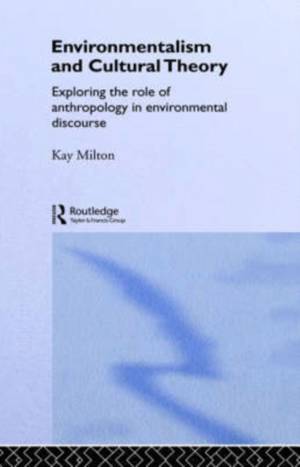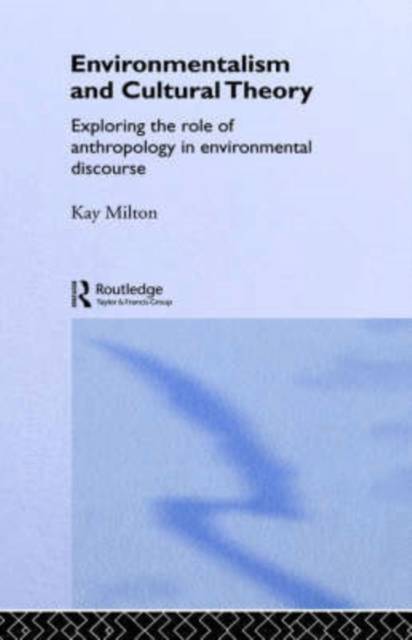
- Afhalen na 1 uur in een winkel met voorraad
- Gratis thuislevering in België vanaf € 30
- Ruim aanbod met 7 miljoen producten
- Afhalen na 1 uur in een winkel met voorraad
- Gratis thuislevering in België vanaf € 30
- Ruim aanbod met 7 miljoen producten
Zoeken
Environmentalism and Cultural Theory
Exploring the Role of Anthropology in Environmental Discourse
Kay Milton
€ 243,45
+ 486 punten
Uitvoering
Omschrijving
The last decade has seen a dramatic increase in the attention paid by social scientists to environmental issues, and a gradual acknowledgement, in the wider community, of the role of social science in the public debate on sustainability. At the same time, the concept of `culture', once the property of anthropologists has gained wide currency among social scientist. These trends have taken place against a growing perception, among specialist and public, of the global nature of contemporary issues. This book shows how an understanding of culture can throw light on the way environmental issues are perceived and interpreted, both by local communities and within the contemporary global arena.
Taking an anthropological approach the book examines the relationship between human culture and human ecology, and considers how a cultural approach to the study of environmental issues differs from other established approaches in social science. This book adds significantly to our understanding of environmentalism as a contemporary phenomenon, by demonstrating the distinctive contribution of social and cultural anthropology to the environmental debate. It will be of particular interest to students and researchers in the fields of social science and the environment.
Taking an anthropological approach the book examines the relationship between human culture and human ecology, and considers how a cultural approach to the study of environmental issues differs from other established approaches in social science. This book adds significantly to our understanding of environmentalism as a contemporary phenomenon, by demonstrating the distinctive contribution of social and cultural anthropology to the environmental debate. It will be of particular interest to students and researchers in the fields of social science and the environment.
Specificaties
Betrokkenen
- Auteur(s):
- Uitgeverij:
Inhoud
- Aantal bladzijden:
- 280
- Taal:
- Engels
- Reeks:
Eigenschappen
- Productcode (EAN):
- 9780415115292
- Verschijningsdatum:
- 5/09/1996
- Uitvoering:
- Hardcover
- Formaat:
- Genaaid
- Afmetingen:
- 144 mm x 231 mm
- Gewicht:
- 467 g

Alleen bij Standaard Boekhandel
+ 486 punten op je klantenkaart van Standaard Boekhandel
Beoordelingen
We publiceren alleen reviews die voldoen aan de voorwaarden voor reviews. Bekijk onze voorwaarden voor reviews.











